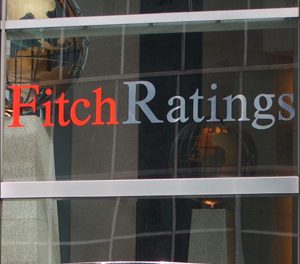by Theodore Koutsobinas, Social Europe
A few weeks ago Athens persuaded private holders of about €30 billion in Greek debt to swap short maturity bonds for five new ones of longer maturity so as to improve market liquidity and push yield rates down before the country emerges from bailouts in August 2018.
Actually, the 10-year bond dived swiftly below the 5% threshold within a week to reach 3.8%. With the return to global financial markets, the Greek government has sought also to maximize political gains before the scheduled 2019 elections through the communication of a “success story”.
Those developments come into sharp contrast with the pursued objective of a nominal debt haircut in spring 2015 when then finance minister Yanis Varoufakis called for various changes in European monetary architecture through the issue of Eurobonds to resolve the Greek crisis. He sought a New Deal-type of solution via an international debt reduction conference reminiscent of the 1953 German arrangement of its post-war debt and perpetual bonds. All those proposals were rhetorical exercises because they shared the same fatal flaw, that is, they depended on the willingness of international lenders to concede favors without achieving any fiscal discipline on the part of the Greeks. Finally, Varoufakis and his team pushed for an unconventional double system of domestic payments with a shadow currency, contrary to ECB rules, which was massively risky for liquidity and would inevitably result in a Grexit and a return to drachma, while its possible implementation would have strained democracy in the country with unpredictable consequences.
Today, the government cites the return to markets, which it did not pursue in 2015, as the right path. Prime Minister Alexis Tsipras admitted in a Guardian interview a few months ago that the plan of Varoufakis was “vague, weak and ineffective.” While the Greek negotiation of a third bailout topped Harvard’s ‘worst tactics’ list for 2015, a large part of the Greek public has remained since then massively resentful about the financial losses caused by “game of chicken” superficial policies and subsequent capital controls.
Diverting from this impassioned chapter in recent Greek history, we here highlight instead a policy lesson that was never discussed before: that back in 2015, the option of a return to international financial markets, which is now central to seizing political and economic gains, was wide open. However, blind with maximalist posturing and wasting time with vain plans, the Greek government failed to capitalize on this path because the blame was conveniently put on “others”, that is, on lenders.
In retrospect, the return to financial markets was the sensible approach to follow although it would have involved the adoption of structural adjustments dictated by the lenders. Was there an alternative path to liberate the country early on from lenders’ demands in return for their financial support lines? In my view, there was further room for maneuver through the issuance of structural adjustment-linked bonds based on policies determined by the Greek government alone.
In February 2012, Greece issued GDP-linked securities, which did not pay a principal and for which payments based on growth in a given year would not be made until the following year. According to a 2012 Morgan Stanley report, under the condition that the nominal GDP equaled or exceeded a threshold or reference nominal GDP, annual payment – which would not exceed 1 percent of the notional value of the bonds – would depend on the weighted difference between GDP growth rate and the reference GDP growth rate.
More Than A Surplus
During 2016, the Greek government proved that it could produce a budget surplus, which is the key consideration for the return to markets. Ideally, however, there was also space for pro-active policies, even during the period of negative growth rates if the government had looked on the necessity of eliminating clientelism through structural adjustment measures. These could have included those generated from the rationalization of the budget and productivity gains from restructuring the highly under-performing public sector including downsizing, reorganization and incentivization of civil servants and their institutions to contain complacency and absenteeism from work.
The expectation of realizing a fiscal buffer of such structural and mainly real economic gains in combination with avoiding fiscal losses arising from disastrous negotiations would inevitably contribute to budget surpluses and resolve the problem that deferred payments for GDP-linked warrants were not possible because of small negative growth rates in GDP during the period 2015-2016.
Specifically, economic gains from budget surpluses could exceed losses from small negative growth rates in GDP. This favorable balance and the underlying cash flows could be used as an additional benchmark, on the basis of which deferred payments could be made to financial investors until GDP growth turned positive after one or two years.
Technically, by adding up budget surpluses as a separate factor to GDP growth alone in the payment formula synthetic structural adjustment/GDP-linked securities could be produced allowing for proper weights on the budget gains.
Those gains could be used to make feasible deferred payments to international financial investors, which are standard for vanilla GDP-bonds even in the case of low real GDP growth rates, or of slightly negative rates of approximately 1% as was the case during 2015-2016 since the final return on the synthetic bond could have been positive. Actually, GDP growth rates might have been positive earlier if the country avoided the capital controls that confrontational negotiations and a nonsense referendum caused and was committed instead to a fast return to positive growth. In that case, a weighted average of expected growth rates for two or three years ahead could suffice to produce a positive threshold to make GDP-linked securities functional, but it is doubtful whether this expectation would have been taken seriously by international investors without prior evidence that Greece was on the right track and capable of generating economic gains from structural policies.
No Structural Pain, No Gain
Evidently, this type of solution was out of the mindset of the government because of the political cost associated with structural adjustments. This does not undermine the fact that financial engineering variants could have helped liberate the Greek government from superfluous memorandum demands of international lenders. Overall, it does not make sense therefore to call a country bankrupt and incapable of being involved with financial markets, if it manages to raise funds because international financial markets conventionally hold expectations that its debt is effectively serviceable with the aid of international lenders.
A lesson for all social democratic forces in Europe today, which confront conservative establishments on various fronts, must be that policy proposals must be quite focused on producing pragmatic outcomes in a way that takes into consideration market dynamics rather than relying on tentative methodologies.
Financial markets do not reward only profits but also economic gains arising from components such as productivity growth. Attention cannot be diverted from sound economic reasoning. This message produces solid implications for the management of the public sector. It shows also that fear of high finance is unwarranted. Even within a progressive agenda, smart policies can be developed and evaluated favorably by financial markets. This synthesis is more suitable for producing an advantageous mix of justice, prosperity and growth rather than the narrower alternative of focusing on redistribution efforts alone in the hope that magically they will fix everything somehow in the end.
This pragmatic lesson was not the case with the bitter episode of the so-called “Athens spring” that has turned out more like a case of “Athens autumn” to the Greek public. The adoption of ambiguous voluntarist and populist policy objectives by the Greek government in early 2015 generated disastrous outcomes. Regrettably, the idiosyncratic fusion of those aspirations with misguided thinking, or (conventional) ‘wisdom’ during the 2015 negotiations produced a major incident of unconventional ignorance worth remembering for a long time.
**Theodore Koutsobinas is currently an Assistant Professor of Economic Theory with an Emphasis on Culture Management at the Department of Management of Culture Environment and New Technologies of the University of Patras, Greece. Former advisor to Andreas Papandreou, his last book The Political Economy of Status: Superstars, Markets and Culture Change was published by Edward Elgar Publishing, U.K. and USA in 2015.



















